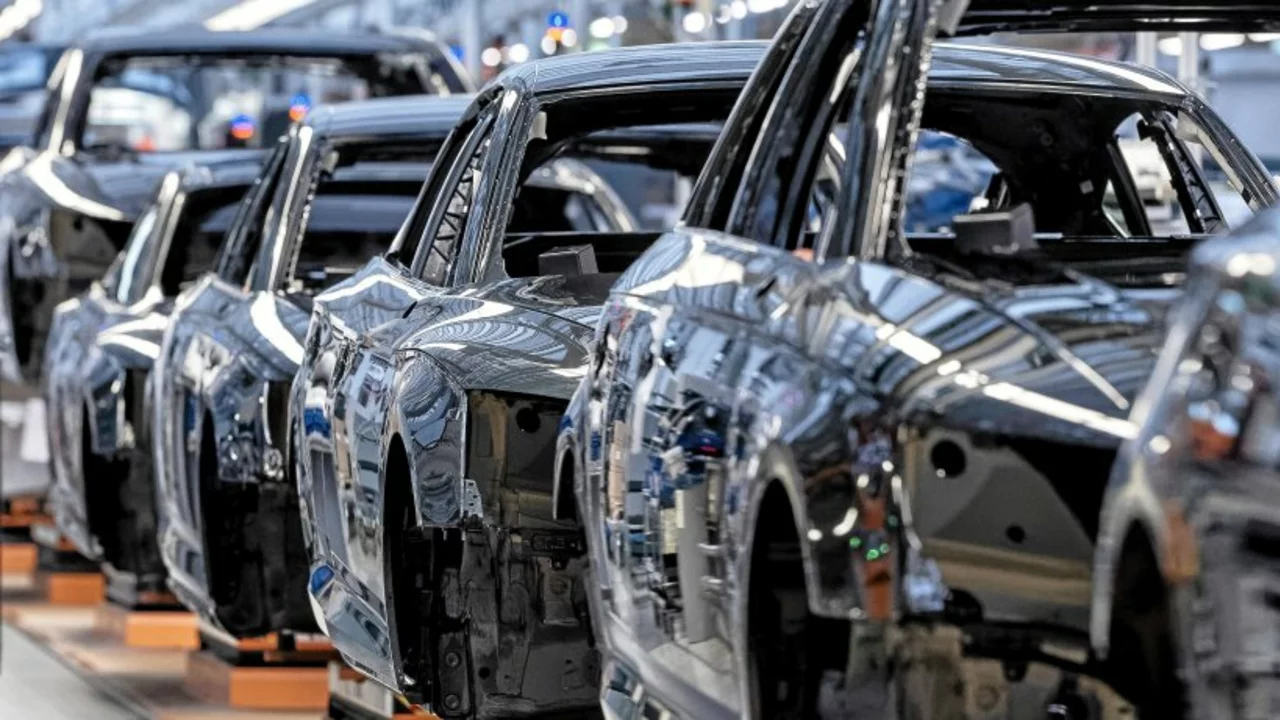The Historical Legacy of US Car Manufacturers
The history of car manufacturing in the United States — whoa, if it could talk! Understanding why we have so few manufacturers here is a journey straight through the heart of America's industrial past. During the late 19th and early 20th century, there was quite a swarm of car manufacturers, buzzing around like bees to honey. Seriously, there were more than 1,800 car manufacturers in the US! Quite the feast for the vintage car enthusiast, I'd say.
Yeah, you hear me right — 1,800. That number bounced right past Toto's ears as we were having our usual fireside chats (Toto being my German Shepherd, not a mystic oracle or something). However, the process of elimination and consolidation set in. There were mergers, acquisitions, bankruptcies, and boom — the landscape started changing. If car companies were a species, this would be their ‘survival of the fittest’ story, boiling it down to what we call the 'Big Three' — that's GM, Ford, and Chrysler for the uninitiated.
Financial Capital: The Fuel of the Auto Industry
Now, here's the thing about car manufacturing - it takes heaps of money. No kidding! The capital expenditure is heart-stoppingly high compared to, let's say, setting up a hot dog stand — it's not just about having a good idea and a bit of gumption. This always reminded me of my cousin Mike. He swore by his hot dog recipe, claimed everyone in Portland would be lining up for a bite! Well, I can tell you, running a hot dog stand and a car manufacturing enterprise are two very different kettles of fish.
The level of investment in infrastructure, research, production, labor, and all the nitty-gritty stuff that goes alongside it is mind-blowing. I mean, consider the cost of innovative production tech alone — robotics, AI, and computer simulations. All those Star Trek kind of things. Trust me; if you want to set up a car manufacturing company, you better have a good relationship with your bank!
Regulations: The Electric Fence of the Auto Industry
Like running into an electric fence, government regulations can give you a real jolt! Environmental laws, product safety requirements, labor standards, tariff regulations - it's a labyrinth in there! And let's not forget about the emissions standards. They can make or break your existence in the industry. Here's an interesting fact - ever heard about the Corporate Average Fuel Economy standards or CAFE, for short? It's a federal law in the U.S that sets a particular efficiency standard for cars and trucks. If your cars don't meet the standards, you're out! Simple as that.
And trust me, it's not just about being on the right side of the law. Regulations can rack up costs like you wouldn't believe. Complying with all these laws means more investment in research, development, testing, and production. So, brace yourself — if you're ever thinking about minting money in car manufacturing, you've got to understand the laws first!
Consumer Preference: The Wind Direction of the Auto Industry
Now here comes the real kicker — we, the consumers. We are a picky lot, and boy, our preferences can bulldoze entire companies. Style, comfort, performance, fuel efficiency, price — every box needs a tick. And if there is a trend, you better be riding it. Take the recent shift towards electric vehicles, for instance. It's changing the dynamics of the industry, pushing traditional manufacturers on the backfoot while giving a leg up to newbies like Tesla.
I remember when I bought my first car, a used classic '91 Honda. Toto and I loved that car, even with its dings and quirks. I considered the fuel efficiency, maintenance costs, comfort, and of course, how cool Toto and I would look cruising around Portland in it. Just like me, other consumers have a host of preferences that shape the market. Adapt or perish - that's the law of the land in the automobile industry!
Globalization: The Chessboard of the Auto Industry
Last but not least, let's talk globalization. It has made this world a lot smaller and a lot more competitive. US manufacturers aren't just up against each other but the entire world. We've seen an influx of foreign brands like Toyota, Honda, Hyundai, and Volkswagen, to name a few, giving a tough time to our domestic manufacturers.
Quick tip for my fellow Portlanders - next time you're in traffic, play a little game. Count the number of foreign cars versus domestic ones. It's a fun exercise that will give you a sense of market segmentations. Trust me, I've done it. Awesome pastime when Toto isn't riding shotgun with me.
Innovation: The Golden Egg of the Auto Industry
In the end, I believe innovation holds the key. Remember when Henry Ford decided to use assembly lines? That was a game-changer. Or when Tesla introduced electric cars to the mass market? These manufacturers didn't just make cars; they reinvented the way cars were made.
Sure, there are high barriers to entry in the automotive industry, no doubt about it. But hey, ever thought about how creativity can trump obstacles? And it's not always about huge leapfrogs in technology. Sometimes, innovation can be about how you manage costs, how you market your product, or even how you make your customers feel. It's about pushing boundaries, and who knows? Maybe the next big name in car manufacturing is reading this very article right now! And if you're out there, remember - it's not a sprint, it's a marathon.
